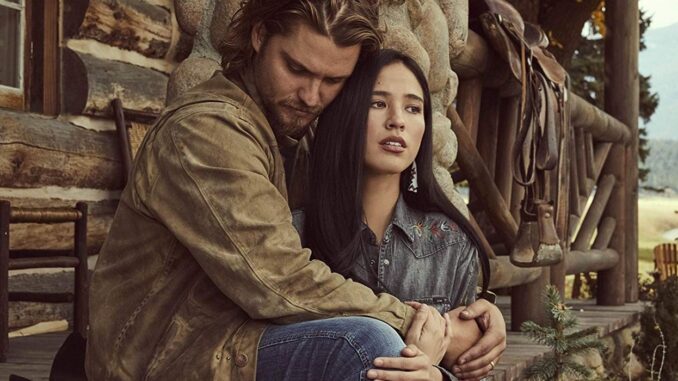
Dust, Drama, and Dominance: How Taylor Sheridan Conquered Streaming with a Franchise Built on Ignorance
Taylor Sheridan's name has become synonymous with a particular brand of American storytelling: rugged landscapes, complex characters wrestling with moral ambiguities, and a slow-burn intensity that simmers just beneath the surface. Yet, for years, this unique voice was largely whispering in the wind, appreciated by cinephiles but far from the mainstream. Then came Yellowstone, a neo-western drama that clawed its way onto the Paramount Network, seemingly bypassed by the radar of critical acclaim and embraced instead by a loyal, if somewhat geographically concentrated, audience. This unexpected success story is more than just a television show; it's a case study in how a franchise, built on themes often ignored by coastal elites and leveraging the power of streaming, can quietly, and then not so quietly, conquer the entertainment landscape.
The initial dismissal of Yellowstone stemmed, in part, from its perceived niche appeal. Centered around the Dutton family, landowners grappling with encroaching developers, resentful Native American neighbors, and internal power struggles in Montana, the show was easily labeled a "red state" drama. Critics often pointed to its perceived political conservatism, its romanticization of the cowboy mythos, and its lack of diverse representation. These criticisms, while valid, often overlooked the nuanced portrayal of the Duttons as deeply flawed individuals, struggling with legacy, identity, and the harsh realities of the modern West. What many dismissed as simplistic melodrama, viewers found to be a compelling exploration of family dynamics, land ownership, and the clash between tradition and progress.
The show's initial limited reach was further compounded by the fragmented television landscape. Airing on the Paramount Network, a channel often overlooked in the age of Netflix and HBO, Yellowstone relied on word-of-mouth and old-fashioned viewership. However, as each season unfolded, the audience grew exponentially. The show's gripping storylines, coupled with stunning cinematography capturing the beauty of Montana, slowly seeped into the cultural consciousness. This organic growth was crucial, creating a dedicated fan base that evangelized the show to friends and family.
The true turning point, however, came with the advent of streaming. While Yellowstone wasn't initially available on streaming giants like Netflix or Amazon Prime, its availability on Paramount+ (formerly CBS All Access) slowly opened the floodgates. The convenience of binge-watching, coupled with the growing buzz surrounding the show, allowed Yellowstone to reach a far wider audience. Suddenly, those who had dismissed the show as a regional phenomenon were discovering its compelling characters, intricate plotlines, and thought-provoking themes.
The success of Yellowstone on streaming platforms shattered preconceived notions about what appeals to mainstream audiences. It proved that stories rooted in American history, even those focusing on less-glamorous aspects like ranching and land disputes, could resonate deeply with viewers yearning for authentic narratives. It also demonstrated the power of targeted marketing and word-of-mouth in an increasingly saturated media environment.
Furthermore, the franchise-building strategy employed by Sheridan has been nothing short of masterful. Understanding the insatiable appetite of the modern audience, he has expanded the Yellowstone universe with prequels like 1883 and 1923, each exploring different generations of the Dutton family and deepening the historical context of their land ownership. These spin-offs, also finding success on streaming, have further solidified Sheridan's position as a force to be reckoned with, demonstrating the power of a well-crafted world and compelling characters.
In conclusion, the rise of Yellowstone from a critically overlooked cable drama to a streaming juggernaut is a testament to the power of authentic storytelling, the enduring appeal of the Western genre, and the importance of tapping into underserved audiences. While its initial dismissal may have stemmed from preconceived notions about its themes and its perceived regional focus, Yellowstone has proven that compelling narratives, regardless of their setting or subject matter, can find a massive audience when given the opportunity. Taylor Sheridan's success is not just about building a franchise; it's about challenging the status quo and reminding the entertainment industry that stories often ignored, the stories whispered in the dust and drama of the American landscape, can be the most powerful of all. The quiet triumph of Yellowstone is a potent reminder that sometimes, the best stories are found not in the gleaming towers of Hollywood, but in the vast, often overlooked, heartland of America.
